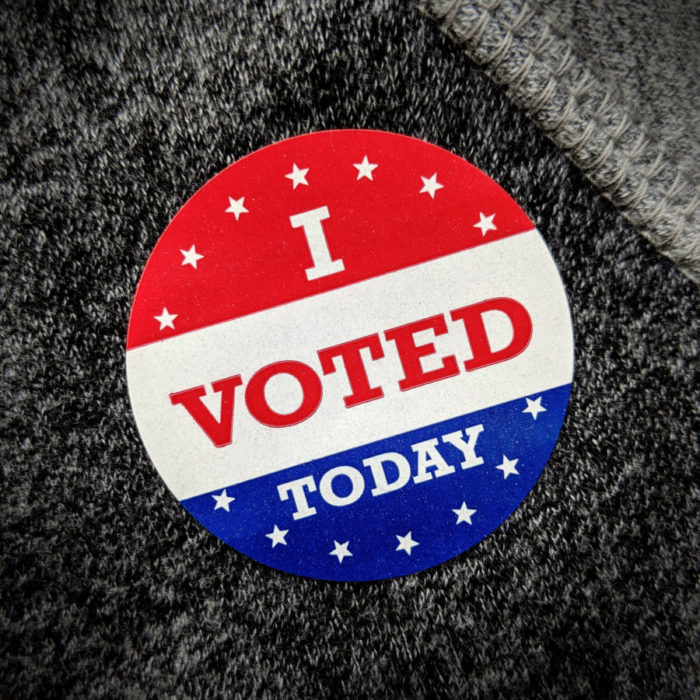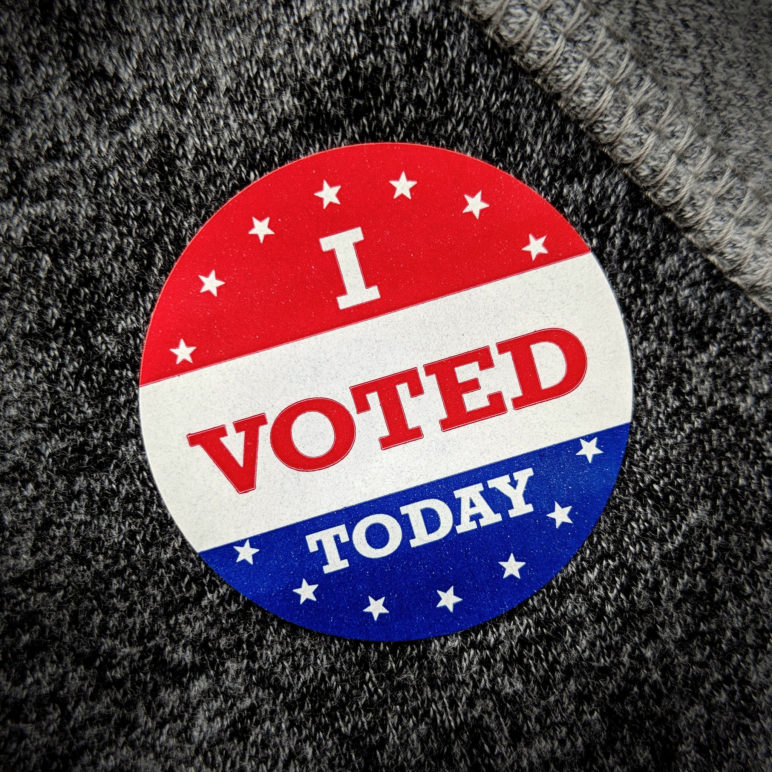Mixed outcomes characterize ballot measures in Cascadia this midterm election. Big Oil beat a carbon fee in Washington, tragically setting back climate action in the state yet again. Big Oil and Big Mining seem to be crushing a salmon-habitat protection measure in Alaska, if early returns are representative of all voters’ views. Big Soda seems well on the way to banning local taxes on sugary beverages in Washington. It wasn’t an across-the-board bleak picture, though, monied interests lost a measure about gun control in Washington and property tax breaks in California. Oregon voters saw through Big Soda’s deceptions. And voters approved bonds for affordable housing in Oregon.
Sightline staff members are monitoring election returns and will update this article as additional results become available. You can also check out our roundup of Cascadia’s political delegation from Congress down to local elections. Here is where things stand:
WASHINGTON
Carbon Fee and Investment—LOST
Cascadia’s marquee citizens’ initiative campaign this year was Washington’s Initiative 1631, which would have put a price on carbon pollution and funded investments in clean energy, clean water, and healthy forests. Record political spending from Big Oil, plus the innate difficulty of convincing voters to impose a new fee at the ballot box, yielded a lopsided loss for the measure. (We’ll post a separate analysis of I-1631 in the context of other Washington ballot initiatives soon.) The lesson of the loss is not that people oppose climate action. One of the lessons is that dirty fuel companies do not want to be held to account for their pollution, and they are willing to spend big to avoid responsibility. Unfortunately, corporate interests’ money bought a crush of messages during a heated election and scared and misled enough voters
READ MORE: Cascadia’s Midterm election results: Candidate Edition
A quarter of the world’s pollution is covered by a carbon price, but no jurisdiction anywhere has ever adopted that price by ballot initiative. I-1631 was the latest in a line of efforts to respond to Washington voters’ clear demands for climate action. Big Oil is losing its grip on the economy, bending to local community demands, and the transition to a clean energy is no longer a question of if, but when. Nonetheless, it is becoming clear that voters’ path to victory must include some democracy reforms that give the people a fighting chance even when Big Money wants something else.
| Yes | No |
| 44% | 56% |
Banning New Soda Taxes—WON
Cloaked in the language of affordability, Initiative 1634 was actually a Big Soda-bankrolled attempt to prohibit any new soda taxes in Washington. According to the language of the initiative, the measure will prohibit local government entities from “imposing any new tax, fee, or other assessment on grocery items.” Since Washington already exempts groceries from state sales taxes, the real purpose of this measure is to stop other localities from adopting a sweetened -beverage tax, as Seattle has done. The Seattle Times called the initiative a corporate takeover of democracy. Unfortunately the deception worked. Tragic.
| Yes | No |
| 55% | 45% |
Gun Control—WON
Washington voters have passed a pair of gun control laws in recent years, including a 2014 measure to require background checks on private gun sales and a 2016 initiative allowing temporary court-issued protection orders to prevent those deemed a danger to themselves or others to have access to firearms. Initiative 1639 will implement restrictions on the purchase and ownership of guns in the state, including raising the minimum age to purchase a semi-automatic assault rifle to 21, expanding background checks and waiting periods for assault rifles, and implementing storage requirements for all guns. After a lawsuit brought by the NRA, Initiative 1639 was first thrown out by a Thurston County Superior Court judge and then reinstated by the Washington State Supreme Court. The initiative vaults Washington into the vanguard of states with tough gun control laws.
| Yes | No |
| 60% | 40% |
OREGON
Modernizing public housing—WON
Bond issues for affordable housing will now be able to deliver an estimated 60 percent more housing. Voters easily approved Measure 102, a common-sense modernization of the state constitution, allowing public bond measures to go toward privately owned housing projects. This will allow the public-private partnerships for below-market and mixed-income housing that are common in states and countries around the world, and let local money leverage federal support from the federal housing tax credit program.
| Yes | No |
| 56% | 44% |
Soda Tax Ban—LOST
Almost identical to Washington’s soda tax initiative, Measure 103 would have “prevent[ed] the enactment or increase of any state or local tax, fee, or assessment on the sale of groceries.” Oregon also does not have any tax on groceries, nor any state sales tax at all. One difference between I-1634 and Measure 103 is that the Oregon measure would have gone so far as to amend the state constitution to deny local governments the power to make these decisions for themselves. Unlike Washington voters, Oregon voters saw right through Big Soda’s attempt to thwart local democracy.
| Yes | No |
| 43% | 57% |
Protecting mansion subsidies—LOST
Oregon’s subsidy on mansions (and also second mansions) remains vulnerable. Voters overwhelmingly rejected Measure 104, a proposal to make it harder for the legislature to eliminate tax credits and deductions. Public debate on this issue was high-minded, but its funding betrayed the bare-knuckle politics beneath: state and national Realtors organizations were by far the largest donors to the “yes” campaign. They were trying to make it harder for future legislators to reduce the state’s largest housing subsidy: the home mortgage deduction, which can even be applied to mostly-unoccupied second homes or vacation rentals. Sixty percent of the tax break goes to people in the state’s highest income bracket, those making more than $84,000 per year, and it rewards the building (and, therefore, the selling) of larger, less land-efficient homes.
| Yes | No |
| 35% | 65% |
Cutting Public Abortion Funding—LOST
Oregon remains the nation’s most pro-choice state. Voters overwhelmingly rejected a ballot measure to pull state funding for abortion services, a change that would have affected lower-income women who receive state-backed insurance and state employees. The number of abortions in Oregon has fallen steadily despite the state’s complete lack of restrictions on the procedures, and more than 40 percent are typically state-funded.
| Yes | No |
| 36% | 64% |
Alaska
Salmon protections—LOSING
Alaska’s sole ballot measure this year, Proposition 1, was a battle royal between conservationists and resource extraction interests. Sadly, the latter prevailed. The measure would have set higher standards for mining and other disruptive activities in salmon and steelhead habitat. It would have created a new permitting system that specified public hearings and other opportunities for public input. It would have given conservationists more tools to stop big mining and fossil fuel extraction projects, such as the controversial Pebble Mine in the watershed of Bristol Bay, the world’s largest salmon fishery. Big Oil, mining interests, and other opponents built a $12 million war chest and outspent proponents more than three to one.. Per voter, they lavished far more money on political ads even than Big Oil deployed in Washington to fight a price on carbon pollution. And it worked. The measure passed by 27.5 points.
| Yes | No |
| 36% | 64% |
California
Property Tax Portability—LOST
California avoided deepening its wealth inequalities by rejecting a ballot measure that would have let homeowners over 55 years of age continue to pay taxes for life based on the value of their previous home, not their current one, no matter where they might move within the state. As Diego Aguilar-Canabal put it, the measure would have let homeowners “further entrench their tax-sheltered dynastic wealth … while continuing to lock future generations and immigrants out of opportunity.”
| Yes | No |
| 42% | 58% |
Gas Tax Repeal—LOST
Californians steered their transportation system away from fiscal disaster by agreeing not to repeal a recent law that hiked state gas taxes and pegged them to inflation. Proposition 6 would have also required all future taxes and fees on cars or driving to go to the ballot, sanctifying the automobile above every other item of private property. It was conceived as a device to get Republican voters to the polls, but it withered under massively expensive assault from the construction industry, who accurately pointed out that it would kill various highway and transit expansions.
| Yes | No |
| 45% | 55% |
Permanent Daylight Saving Time—WON
In recent years, many states and countries have been rebelling against the outdated act of changing clocks back and forth twice a year. Changing clocks generate a host of negative impacts, from heart attacks and strokes to traffic accidents. US federal law does not allow states to stay on daylight saving time year-round. (Many voters who want to stop clock changes would rather stay on daylight time than standard time because they are already on daylight time nearly eight months of the year and they prefer having more sunlight after work). California has to take one more step—overturning the WWII era proposition that instituted daylight saving clock changes in the first place. This year, California legislators passed Assembly Bill 807 to stay on daylight saving time year round if the following happened:
1) voters approved Proposition 7 (this measure)
2) two-thirds of the legislature confirms the change
3) Congress approves it.
California legislators already passed a resolution in 2017 asking Congress to permit states to adopt year-round daylight saving time. Last year, Florida’s lawmakers passed and the governor approved a year-round daylight savings bill, and Senator Marco Rubio is enthusiastically pursuing the issue in Congress. California voters cleared the first hurdle, so now the ball is in lawmaker’s court.
| Yes | No |
| 60% | 40% |
Rent Control Expansion—LOST
It looks like regulated rental homes in California will remain an ever-shrinking share of the housing market—at least for now. Homeowners worried about losing property value seems to be the killer of Proposition 6, which would have re-legalized local regulation of rental prices for detached and recently built homes, plus allowed cities to prevent landlords from resetting a rental price to the current market rate when bringing on a new tenant. (In housing jargon: Prop 6 would have ended “vacancy decontrol.”) This means rent control will continue to be possible only for buildings constructed before 1995—a system that greatly reduces the risk of rent control directly reducing construction rates, but (as Burnaby, British Columbia, learned last month) increases the chance that “newer housing” and “affordable housing” will come to be seen, politically, as fundamentally opposing values.
| Yes | No |
| 38% | 62% |
LOCAL BALLOT MEASURES
Portland Fair Elections Charter Amendment—WON
In 2016, Honest Elections Multnomah County won a whopping 89 percent of the vote. Now its twin, Measure 26-201, won by a similar landslide in Portland. Measure 26-200 will limit campaign contributions in city elections. The measure will help make Open and Accountable Elections Portland, which the Portland City Council passed in 2016, more effective. Candidates who opt-in with small donations and a public match will be better able to compete with candidates who accept large donations when those large donations are limited to $500 per donor.
*Results as of 8:30 p.m.
| Yes | No |
| 88% | 12% |
Portland Clean Energy Initiative–WON
The Portland Clean Energy Initiative will charge large retailers operating in Portland a fee and invest the roughly $30 million per year in revenue in cleaner energy projects and job training. A broad coalition of groups put together Measure 26-201 and ran the campaign.
| Yes | No |
| 64% | 36% |
Lane County STAR Voting Method—LOST
Measure 20-290 would have changed Lane County’s electoral method to elect county officers by Score The Automatic Runoff (STAR) voting. Previously called Score Runoff Voting, this is a made-in-Oregon reform for giving voters the opportunity to express a wider range of opinions about each candidate—instead of picking one, voters will be able to give each candidate a score between zero and five stars, like a Yelp rating.
| Yes | No |
| 47% | 53% |
Portland regional housing bond, 26-199—WON
Portland-area voters have taken a new step toward regional housing policy by going in together on a three-county property tax hike to create or acquire up to 4,000 homes for low-income households, especially very-low-income households who make less than 60 percent of the local median income. Organized by regional government Metro but to be delivered by local authorities, the $652 million bond issue is an attempt to backfill against the long slide in real federal funding for low-income housing. It also leveraged relatively heavy support among Portland voters (65 percent as of Tuesday) to get a housing tax past more conservative suburban counties—but at least tonight, it’s ended up leading in both suburban counties too.
| Yes | No |
| 58% | 42% |
Non-Cascadia states’ initiatives to watch:
We are interested in eight statewide initiatives outside of Cascadia. Several of these continue the spread of a democracy improvement that originated here in Cascadia—automatic voter registration. Including the wins below, 16 jurisdictions will now automatically register voters. Some initiatives attempt to combat gerrymandering, an ill that Sightline cares about curing. The others are anti-corruption measures. Represent.US, a US national nonprofit that Sightline sometimes works with, is reporting real-time results.
Utah, Anti-Gerrymandering—WON
Proposition 4 will create an independent redistricting commission. Commissioners will be appointed by the Governor and state legislative leadership and can’t be elected officials, lobbyists, candidates for office, or others with a personal interest in the outcome. When drawing the maps, the commission must adhere to standards such as keeping communities of interest together and not using incumbent addresses and partisan data.
Colorado, Anti-Gerrymandering—WON.
Amendments Y and Z will create independent, 12-person commissions to lead the redistricting process—one for congressional districts (Y), and one for state legislative districts (Z). Each commission would be explicitly multi-partisan, consisting of four Republicans, four Democrats, and four people unaffiliated with either party. Commissioners would follow clear, consistent map-drawing criteria.
Michigan, Anti-Gerrymandering—WON.
Proposition 2 will amend the state constitution to create an independent citizen redistricting commission to draw both congressional and state legislative lines.
Michigan, Secure and Modern Elections—WON.
Proposition 3 will automatically register qualified citizens to vote when they receive or update their driver’s license or state identification, allow any registered voter to request an absentee ballot so they could vote at home, permit citizens to register to vote in-person through Election Day, and ensure the accuracy and integrity of elections by auditing election results.
Missouri, Anti-Corruption & Anti-Gerrymandering—WON.
Amendment 1 will lower campaign contribution limits for state legislative candidates, close the revolving door for legislators becoming lobbyists, eliminate almost all lobbyist gifts to legislators, require legislative records be open to the public, and ask a nonpartisan expert to draw legislative district maps, which would then be reviewed by a citizen commission.
Nevada, Secure and Modern Elections—WON.
Question 5 will automatically register qualified citizens to vote when they receive or update their driver’s license or state identification.
North Dakota, Anti-Corruption—WON.
Measure 1 will ban foreign money from elections, prevent personal use of campaign money, increase transparency, close the revolving door, and create a nonpartisan ethics commission to investigate ethics complaints.
South Dakota, Anti-Corruption—LOST.
Amendment W would have restricted lobbyist gifts, banned foreign money from elections, banned campaign money from unions and corporations, prevented personal use of campaign money.












